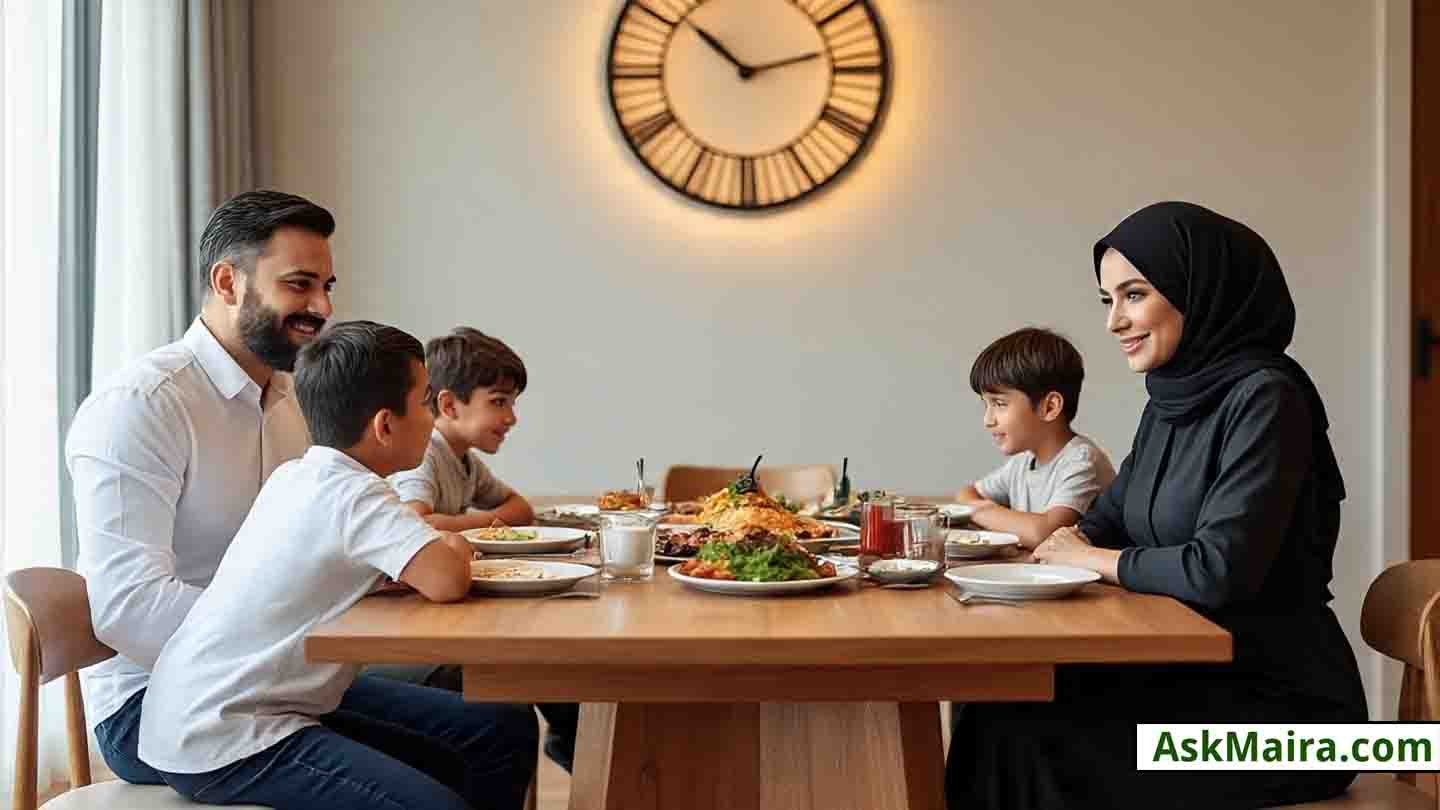Family is the foundation of every society. In Islam, the family holds a very high position because it is seen as the first school of love, manners, faith, and responsibility. The Qur’an and the teachings of Prophet Muhammad (peace be upon him) provide clear guidance on how a family should be formed, maintained, and protected. Islam does not only talk about worship but also guides us in building a healthy family system that ensures peace and balance in society.
In this article, we will discuss the structure of the family in Islam, its guiding principles, and the rules that protect it. This explanation will help us understand why family is called the cornerstone of Islamic society.

Importance of Family in Islam
-
Family is the basic unit of Islamic society.
-
A strong family creates a strong nation.
-
It provides love, protection, and moral values to the next generation.
-
The Qur’an encourages kindness, respect, and cooperation among family members.
-
Marriage and family life are considered acts of worship if done according to Islamic principles.
Structure of the Family in Islam
Islamic family structure is based on clear roles and responsibilities. Every member of the family has a duty that ensures balance and harmony.
1. Husband
-
The husband is the head of the family.
-
He is responsible for financial support (nafaqah).
-
He must protect his wife and children.
-
Islam commands him to treat his wife with kindness and respect.
2. Wife
-
The wife is the heart of the home.
-
She is responsible for love, care, and upbringing of children.
-
Islam values her role and gives her rights of maintenance, respect, and inheritance.
-
She is not a servant but a partner in life.
3. Children
-
Children are blessings of Allah.
-
Parents must raise them with good manners and strong faith.
-
Islam commands love, kindness, and fair treatment for children.
-
Sons and daughters both have equal rights in love and respect.
4. Extended Family
-
Islam emphasizes respect for parents, grandparents, uncles, aunts, and relatives.
-
Maintaining ties of kinship (Silat-ur-Rahm) is a great virtue.
-
Breaking family ties is considered a major sin.
Principles of Family in Islam
Islamic family life is based on certain principles that ensure love, justice, and balance. These principles protect the rights of every member.
1. Marriage as a Sacred Bond
-
Marriage (Nikah) is not just a contract but a sacred relationship.
-
It protects individuals from immorality.
-
It ensures physical, emotional, and spiritual comfort.
2. Mutual Respect and Love
-
The Qur’an describes spouses as “garments for one another” (Surah Al-Baqarah 2:187).
-
This means they protect, comfort, and beautify each other.
-
Love and respect are key principles of Islamic marriage.
3. Justice and Fairness
-
Islam commands fairness in financial matters, parenting, and relationships.
-
No family member should be oppressed.
-
Equality between children is strongly emphasized.
4. Rights and Responsibilities
-
Every member has rights: food, shelter, respect, and inheritance.
-
Every member also has responsibilities: kindness, obedience, and financial support.
5. Consultation and Cooperation
-
Family decisions should be made with mutual consultation (Shura).
-
Husband and wife should work as a team in raising children and managing the household.
Rules of Family Life in Islam
Islamic teachings provide clear rules that protect the family system.
1. Rules Related to Marriage
-
Marriage should be based on faith and good character.
-
Forced marriages are forbidden in Islam.
-
The consent of both man and woman is necessary.
-
Dowry (Mahr) is the right of the wife, not a burden.
2. Rules for Husband and Wife
-
Husband must provide financial support.
-
Wife must take care of the home with respect and dignity.
-
Both must avoid abuse, disrespect, or betrayal.
-
Prophet Muhammad (PBUH) said: “The best of you is the one who is best to his family.”
3. Rules for Parents and Children
-
Parents must provide halal food, education, and guidance.
-
Children must show respect and obedience to parents.
-
Disobedience to parents (Uqooq al-Walidayn) is a major sin.
-
Sons and daughters both inherit property according to Islamic law.
4. Rules for Extended Family
-
Maintaining ties with relatives is obligatory.
-
Helping relatives financially is a form of charity.
-
Cutting off relatives is strongly condemned.
5. Rules for Divorce (If Necessary)
-
Divorce is allowed but disliked.
-
It should be the last option after all efforts of reconciliation fail.
-
Proper procedure must be followed as mentioned in the Qur’an.
-
Both husband and wife should part with dignity and fairness.
Family as a Source of Social Stability
Islamic family life is not just about individuals, but about the entire community. When families are strong:
-
Children grow with love and discipline.
-
Society becomes free from corruption and immorality.
-
Elders are respected and cared for.
-
Justice and peace spread in the community.
When families break down, society faces problems like crime, immorality, and selfishness. That is why Islam puts so much importance on family values.
Modern Challenges to the Islamic Family
Today, Muslim families face many challenges such as:
-
Materialism and neglect of Islamic values.
-
Influence of Western culture and media.
-
Broken families due to divorce or conflicts.
-
Neglect of elders in old age.
Islam provides solutions by reminding us of patience, consultation, forgiveness, and returning to Qur’an and Sunnah in family matters.
The family in Islam is more than just living together. It is a sacred system built on love, justice, and responsibility. Husband, wife, children, and extended relatives all play an important role in maintaining this system. By following Islamic principles and rules, we not only strengthen our homes but also build a peaceful society.
The Qur’an and the Sunnah of Prophet Muhammad (PBUH) are timeless guides that protect the family system from destruction. Strong families create strong nations, and strong nations serve humanity in the best way.
FAQs
1. What is the role of the husband in Islam?
The husband is the protector and provider. He must support his wife and children financially and emotionally while treating them with kindness.
2. What rights does a wife have in Islam?
A wife has the right to maintenance, respect, inheritance, and fair treatment. She must not be oppressed or treated as a servant.
3. How should children be treated in Islam?
Children should be raised with love, kindness, and discipline. Sons and daughters must be treated equally.
4. Is divorce allowed in Islam?
Yes, divorce is allowed but it is disliked. It should only happen after all efforts of reconciliation fail.
5. Why is family so important in Islam?
Family is important because it is the foundation of Islamic society. A strong family ensures love, justice, and peace in the community.










